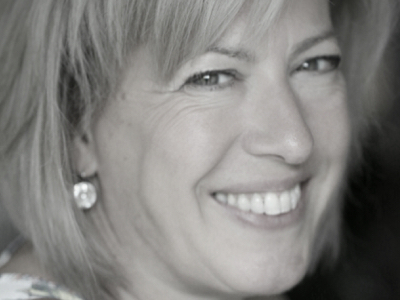My name is Sally Clark. I am the Chief Internal Auditor at Barclays where I have worked for the past four years.
 I am a qualified Executive Coach and have an MBA. I am married with two children and two step children who are a joy and delight. I have spent thirty years in financial services primarily in auditing and in addition to my day job I am a non-exec on the Institute of Internal Auditors Council.
I am a qualified Executive Coach and have an MBA. I am married with two children and two step children who are a joy and delight. I have spent thirty years in financial services primarily in auditing and in addition to my day job I am a non-exec on the Institute of Internal Auditors Council.
Did you ever sit down and plan your career?
I never really planned my career. Having left university with a degree in English Literature I went into retail banking with an open mind but not a fervent desire to be a banker. I have had an amazing set of opportunities offered to me and have resolutely grabbed each one along the way. From moving to Chase Manhattan Bank Internal audit off the back of an advert that said graduates wanted for international travel, through feedback from a senior manager that I was good with people but was I good technical – which led me to take up a technical training role in the function, to my move to Barclays as a result of a conversation with my previous boss at JPMorgan who had moved there.
Have you faced any challenges along the way and if so, how did you deal with them?
There have been some personal life challenges that I have had to deal with which required me to be resilient along the way – my father committed suicide when I was 24 and this was a massive shock for me, my marriage ended in the mid 2000s and I had to juggle being a mother with a busy job and I found myself off with stress in 2010 for a month which caused me to rethink my approach to work. Through all of these challenges I think the key things were to be very self aware and not to hide away from what I was feeling, to ask for help from other people around me and to not try and be perfect. Work challenges crop up all the time in my role as head of Internal audit – I think the key thing here is to have empathy for others and to work to influence them through good strong relationships rather than through positional power. As a trusted advisor to the business, I see my role to provide both positive and negative feedback from our work.
What advice would you give someone who wishes to move in to a leadership position for the first time?
Go for it! One of the key things that I think people are loathe to do at times is to consider that they are capable and well qualified enough for more senior roles. The adage that women in particular think they need to have perfection in all attributes that a role is asking for comes to mind – people will never be perfect at everything so accepting this and still applying for roles is a much better way to approach the issue. Remembering that what got you to where you are won’t necessarily get you to success in the next role is also important – moving into a leadership role alters the balance of personally delivering vs empowering others to deliver for you and as such qualities of coaching, patience, clarity and communication replace the qualities of doing actual delivery. Time management becomes a priority – remembering not to let your inbox be a cul-de-sac but a through road to enable others to do the things that can land in your inbox is a great lesson that I learnt early on. Also delegating to others should be seen not as an abdication of responsibility but as an opportunity to let other people do something better than you could have.
When faced with two equally-qualified candidates, how would you decide who should have the role?
I always turn to the back of any CV and look at what a person has done outside of their education/work experience. Have they got wide ranging interests that they follow? Did they do things like Duke Of Edinburgh Awards or equivalent? Have they volunteered or taken leadership roles outside school/work? Personal qualities and values are really important – and very often the things at the back of a CV are indicators of this.
How do you manage your own boss?
I have two bosses who are both very senior busy people. I am largely self sufficient in what I need to do day to day so I try to make sure that I keep them in the loop of what we are doing in the function without flooding them with unnecessary detail.
On a typical workday, how do you start your day and how does it end?
I try to start and end the day with a mental check in on both what lies ahead and whether I am prepared for it and then whether I have done what I needed. I think about the balance of time on strategic and tactical things and whether I have also balanced time with the team appropriately. Have I thanked people for what they have done and made sure that I haven’t left something undealt with overnight. I would also add that each day starts with a cup of tea in bed that my husband delivers and usually ends with a glass of wine and a chat about what the day has delivered.
What advice can you give to our members about raising their profiles within their own organisations?
Network and be bold about reaching out to other influential people. I have never been annoyed when someone has come and contacted me to ask for advice or just some time – and whenever I can I try and help directly. Madeleine Albright’s comment that there is a special place in hell for women who don’t help other women rings true and I think that people may be surprised by how many people will be willing to help them. Volunteer for things outside of the day job – projects, networks, etc – so you can become known for being someone who is engaged in the firm as a whole rather than only through you own day to day work.
How have you benefited from coaching or mentoring?
I have benefitted massively from both coaching and mentoring and have worked with some amazing coaches who have helped me to develop confidence to tackle each of the big roles that I have found myself in. They create the space to look at oneself through different lenses and to see you as others see you. I now work with reverse mentors – more junior and younger staff who keep me on my toes as a senior leader. I qualified as a coach some time ago and have instilled a culture of coaching within the audit function at Barclays that is spreading the benefits across the whole team.
Do you think networking is important and if so, what 3 tips would you give to a newbee networker?
Yes networking is important to people – as you get more senior in any organisation it is the relationships you have built along the way that can help to get things done more quickly and easily. Also the people you meet through networking can be helpful in bouncing career ideas off, may help open important doors and can more generally enrich your life as you are exposed to a broader group of people.
What does the future hold for you?
I am loving my current job and being part of a transformation at Barclays. At some point I could envisage using the coaching skills and qualifications in a more full time capacity and potentially becoming a non-exec on a Board. I plan eventually to retire to Italy and cook pasta!!








